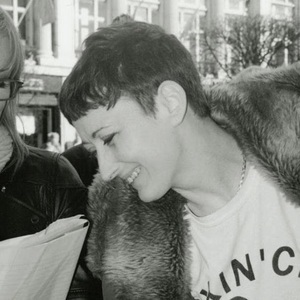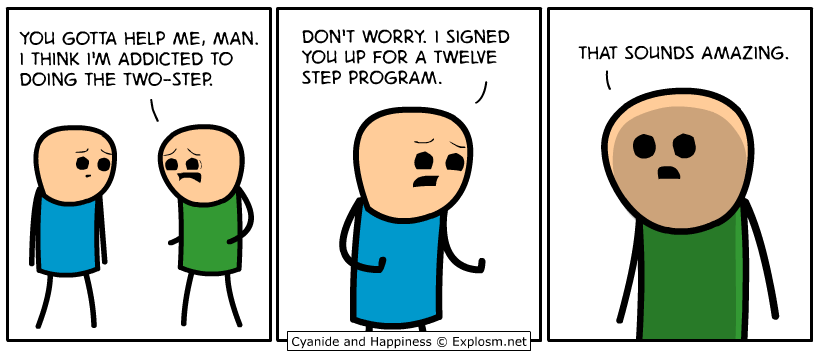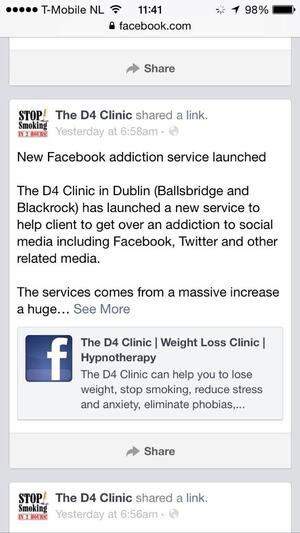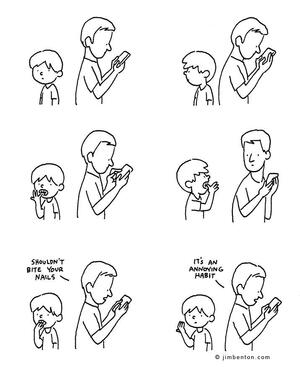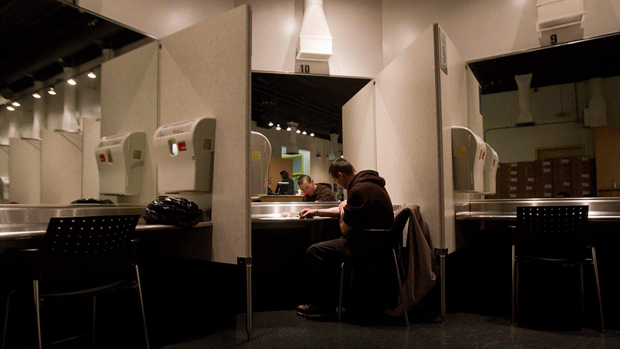Journalist Dara Quigley
Dara Quigley, in the Dublin Inquirer, writes:
A few weeks after the equality referendum, I was sitting with a HSE counsellor in one of the drug outreach centres in the city.
“Well you have to admit,” she said in a nice, calm tone, “all that – addicts being treated with dignity and respect – I mean that was all a bit delusional. Wasn’t it?”
I tried to argue that even she had to admit that addiction is a complex issue and not one of moral absolutes, and sure hadn’t we just had a referendum to say we were all equal.
“That’s one of the things I like about you,” she replied. “No matter how bad things get you always manage to find humour in it.”
It wasn’t a debate I was going to win. And if it had been a few years earlier, and I had been a bit more impressionable, I might have believed and internalised her message.
However, thanks to a few special individuals, I had just about enough strength to hold onto my sense of self, and to think that maybe a better life wasn’t just something I deserved, but something that I and every other recovering addict and addict had a right to.
Today I can almost safely say that I believe that. And that is one of the unseen struggles of recovery from addiction. A constant battle between what you know is true, a desire to make it out the other side, pitted against a society which views addicts – particularly women addicts – as moral hazards to be contained and controlled.
Experts speak of clusters of addiction, almost as a contagion which needs to be neutralised. Or in some cases left on a too-high dose of methadone for decades: crime-prevention and a nice kick-back for the prescribing doctor and the HSE.
I can understand how easy it is to see the figures and reduce the people behind them to one label, one stereotype: junkie. It can be a struggle at the best of times. We live in a post-theocratic society, and, being a heroin addict, a junkie – even the most right-on liberals find it difficult to imagine anything other than the stereotype.
I know, I was surrounded by right-on liberals. To quote a Glaswegian MC and friend of mine, Darren “Loki” McGarvey, “I hang with middle-class professionals in spacious flats, who debate Irvine Welsh while I’m taking smack.”
Although once that started, friendships ended – sometimes in incredibly nasty ways.
Society has a way of preparing you for what’s to come, and socially I was being prepared to guard my own sense of identity – both from the drug and from the standard Irish tough-love model of shame and guilt. Respect and dignity were two things I was going to find myself piecing back together.
Smack is the drug which will cut right through any pretence and get ’em right in the middle-class sensibilities. One group of friends I had known for almost 10 years even found themselves a replacement token working-class woman: another mature student, studying the same subject as me, before making it clear that I had been replaced.
In retrospect it was all they knew how to do. The enormity of the problem was too much for anyone to take on, and it takes lot of effort to support someone who’s yo-yoing between addiction and bouts of clean living. Even the best of friends lose patience eventually.
And the guilt which comes from cutting a friend loose has to be justified. A law I’ve figured out is that the enormity of the moral outrage is inversely proportional to the time spent with you during addiction. Those who were most offended disappeared almost immediately.
Such is the stigma associated with chasing the dragon.
Again I found solace in hip-hop and Loki’s “2nd Wind” got me through a few tough days. “To re-enter a world where pariahs wait to greet me, maybe I’m confused have you not got a riot act to read to me? Apologies I’ll cover any damages, church mice bicker over crumbs from my sandwiches.”
The track, and the time he spent talking me down through the worst of it, it was the kind of support people in Ireland simply could not offer. Acceptance of your flaws and embracing them rather than the traditional 12-step “beg a higher power to remove your intrinsic defects”: it was the start of a life- and sanity-saving philosophy.
A few very special friends are still hanging in there. And fair play to you all, I was a selfish little shit. Past tense for the most part.
In the Kafkaesque world of recovery in Ireland, which at times seems designed to break you down until you are ready to be remade, sometimes there are still bad days. After reclaiming your autonomy from substance abuse, you have very little control over the path of your life, with never-ending waiting lists and seemingly random decisions being made on your behalf to balance a book somewhere.
And these days, instead of being remade in the image of whatever the name of the saint is on the roof you landed under, like true ideological soldiers of neoliberalism that we are, drug stabilisation programmes are CE schemes, where being technically employed doesn’t come with many rights for the participants, and if you don’t learn your place fast enough you could be bounced to any number of courses which aren’t particularly suitable.
After I had sworn and raised my voice a bit I was sent off for CBT. In the first class, one of the slides was in German. The facilitator laughed, “We do get them from Germany.” The next class, one of the slides encouraged us to think of ourselves as €100: you may not always feel like €100, and that’s okay, not everybody is €100 all the time. At that point I told them I was a journalist and happily enough it was decided that I didn’t need to be there.
Only a century of theocracy and a proud tradition of health care as charity while using the
weakest members as a disciplinary measure, the cautionary tale to keep the rest of the
population in check, can produce post-austerity hollowed-out drug programmes that have had their budget cut by 37 percent post-crash.
Still, the counselor who was busy – that day after the equality referendum – re-enforcing my position as “less than”, has been a lifeline. There was a lot I just may not have been able to deal with alone.
It had only been just over a two-month wait, which in public-service addiction-treatment terms is rapid response. “The first thing you learn is that you always gotta wait,” to quote Lou Reed’s “Waiting for My Man”. Through decades and space, addicts today listen to that and laugh.
Not that addiction is a barrel of laughs. The ones you have are gallows humour. Jokes and a vernacular riddled with references to death and decay, alliances dressed up as friendships, permanence a distant memory to be unwrapped at times when you need it most.
Now that sense of belonging is coming back, tai chi – not something I would have tried before – has turned out to be, along with writing, one of my most beneficial tools.
After the CE scheme decided that, even after taking a break, I “wasn’t a good fit”. At that stage, I was going to tai chi twice a week, slowly rebuilding the connection between my brain and my body as my muscles grew stronger. I’ve since proceeded to kung fu. They’re both incredible ways of rebuilding not just your body but your mind with long, standing-on-one-leg meditation sessions.
It was during one of those that I finally worked up the confidence to hit a few open-mic nights to, quoting Darren Loki, “push the envelope and cause a fuckin postal strike”. And I’ll be opening with the line, “You’re the revolution mate? I’m a full-sprectrum paradigm collapse on Russell Brand’s parade.”
It’s a long, slow road to building myself back up. I won’t lie and say I jump out of bed everyday with renewed hope.
Some days it takes every ounce of strength I have to get out of bed and eat, if I can eat at all. Others, the simple pleasure of sunshine on my face while I’m drinking coffee and doodling on a drawing pad, usually with a cigarette (but one thing at a time) is enough to make my heart swell and tears fall at the resilience of the human condition.
Some days I’m even proud of myself. Slowly, but surely, day by day, with every meal finished, every class of tai chi, every day I don’t pay some dickhead €20 to feel like a human being, I’m reclaiming my right to pride and dignity.
Dara: Every addict has the right to a better life (Dublin Inquirer)


